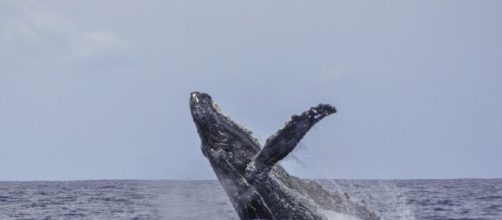Project Jonah, a conservation group that cares for sea animals in New Zealand, has revealed that 416 pilot whales have washed up on the beaches of New Zealand and most of them were just carcasses when discovered. This has been reported from a place known as Farewell Spit located on the tip of South Island.
Efforts are on to rescue the whales
While most of the whales that have washed up on this beach of New Zealand are dead, volunteers have come forward to refloat the ones that are still alive. However, some of them appear to have lost their sense of direction and are seen to be heading back into the bay instead of going towards the sea.
Rescuers have kept their fingers crossed and hope that the whales will turn around when it is high tide. If they do not do so, it will be difficult to rescue them.
As an interim measure, a team of volunteers will cover the survivors with sheets and try to keep them alive by alternate means. A ferry that maintains contact between North Island and South Island has offered to carry marine mammal medics free of cost to the location sas this is a humanitarian issue.
Why do pilot whales die en-masse?
There is no information on why pilot whales choose to die en-masse on the beaches. One theory is that they could be chasing a prey and, in doing so, wash up on the beach. Another theory is that they could be protecting one of its own which is sick.
Whatever be the reason, the sight of so many carcasses on the beach at a time is a mystery. The present incident at Farewell Spit is believed to be the third largest whale stranding in New Zealand. The largest such incident was in 1918, and the number of pilot whales was nearly 1,000. That happened on the Chatham Islands. Later, in 1985 the number was 450 and the location was Auckland.
Incidentally, Farewell Spit is a place where whales get stranded frequently. This could be attributed to its geography since it has a long protruding coastline alongside sloping beaches and, once the whales wash ashore on this stretch, they find it difficult to locate their bearings.

